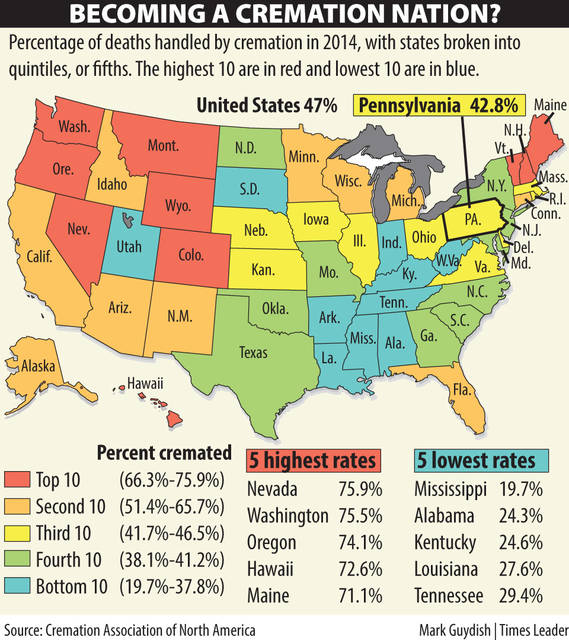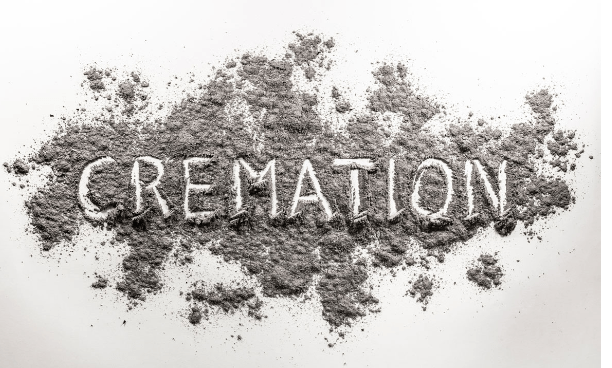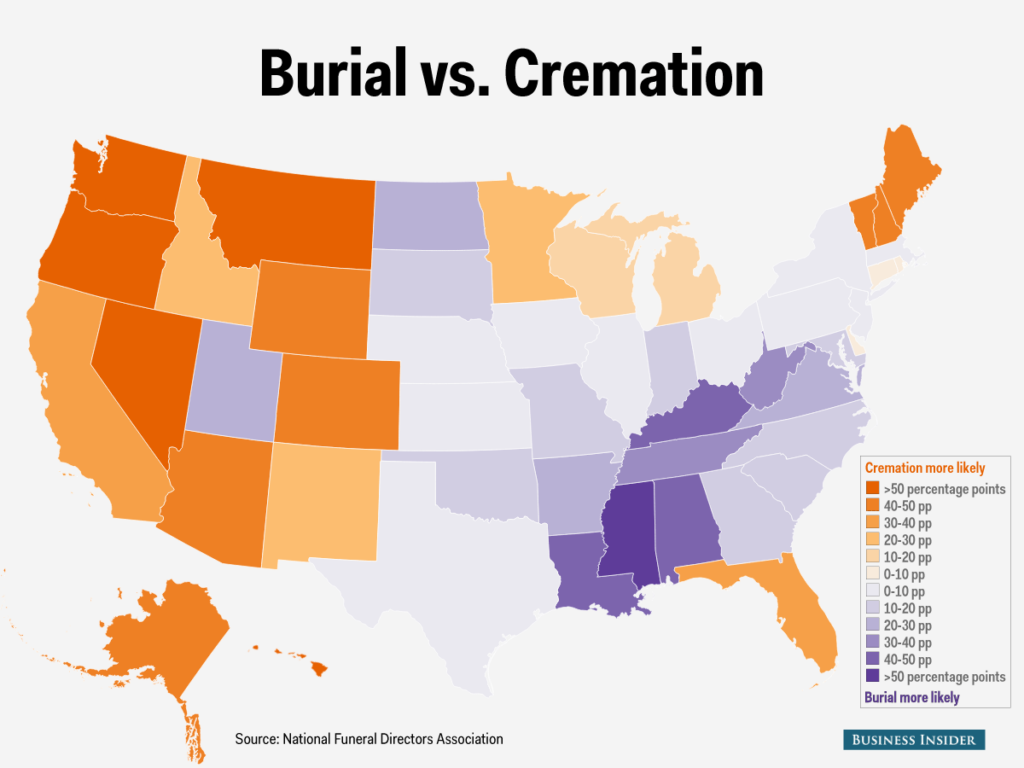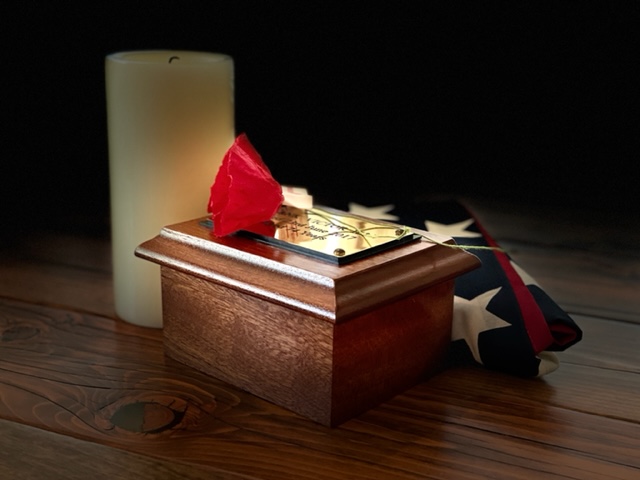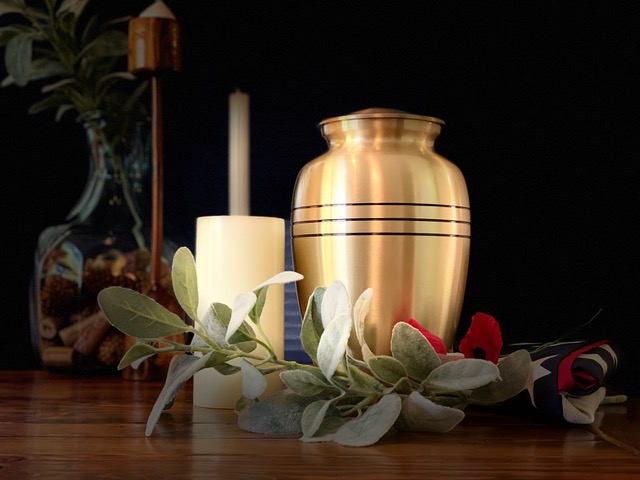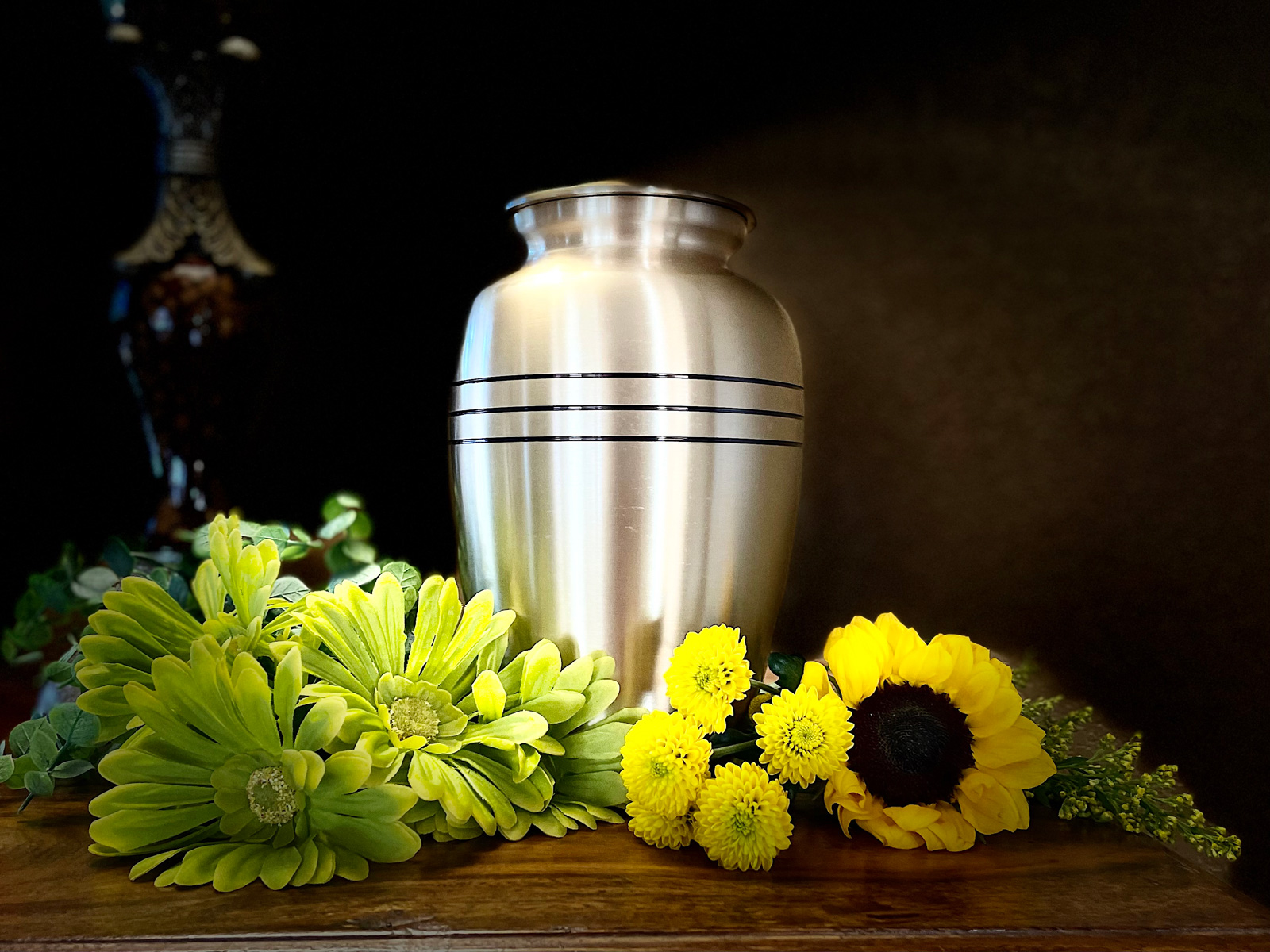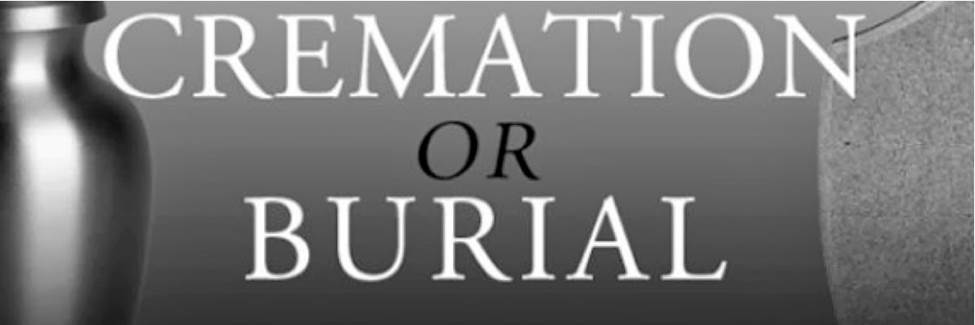
As cremation is now the preferred death care choice, more families are asking questions about cremation to determine if cremation is the right choice for them.
Deciding about the final disposition of a loved one can be one of the biggest decisions you make if you are charged with arranging a funeral. If your family member did not have a funeral plan in place or had not expressed their wishes before passing, it can be even harder to make decisions.
Cremation is the ‘buzz’ word in the funeral industry now, as we have witnessed the US shift from largely traditional burials to embracing cremation and a simpler and ‘no fuss’ death care alternative.
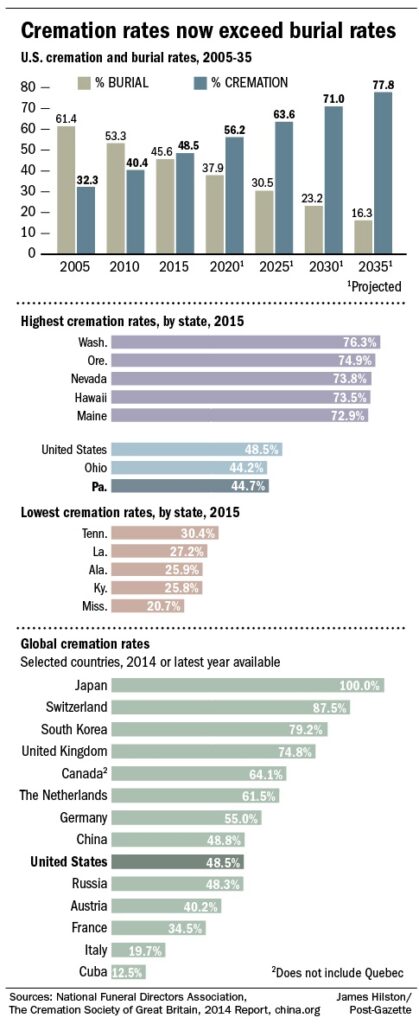
How the cremation rate is changing
Since 2012, we have witnessed a huge shift towards cremation. Ten years ago, the National Funeral Directors Association (NFDA) forecast that the cremation rate nationally will hit 77.8% by 2035.
This year they have reviewed that figure to 85%. Many funeral homes in the DFS Memorials network report that 80% of their funerals are now cremation.
Even states that remained traditional in their death care and burial attitudes are beginning to shift to cremation options.
Why are families choosing cremation?
Although there are several reasons why families are choosing cremation, the biggest determining factor is cost.
Cremation is significantly cheaper than a traditional burial. No casket is required, embalming is not required, and cemetery plots, vaults, and fees can be eliminated.
With many Americans struggling financially, a cremation can prove a much more affordable means of conducting a disposition.
Aside from this, there is a growing trend towards simpler funeral choices. Many Baby Boomers are just opting for a simple ‘no-fuss’ cremation.
We are now a more transient and transplanted nation than ever before, with families spread across states and even the nation. This means that the notion of a traditional burial place no longer has the same meaning, and families cannot be memorialized similarly. Many feel that cremation allows them to be memorialized in a different way.
Our attitudes towards religion and the environment are also shifting, and this has impacted death care choices.
How do burial and cremation prices compare?
DFS Memorials offer direct cremation from $695 – Use our Local Provider Search to find your nearest location.
An average traditional funeral costs in the region of $10,000. A cremation can cost between $1,000 to $3,500. Direct cremation, the least expensive cremation option, can cost between $500 – $1,000. So, there is a significant saving if you opt for cremation. DFS Memorials providers all offer a low-cost direct cremation to their communities.
In many cities, burial space has become limited, increasing burial plot prices. For example, a cemetery plot alone can cost $18,000 in New York.
Funeral providers offer very simple burial services and even natural burial, which can prove an inexpensive alternative to a traditional burial.
Families conducting their own memorial services
Cremation changes how we can memorialize a loved one. There does not have to be a rush to conduct funeral services promptly before burial. A cremation can be conducted, and a memorial service can be held later. This gives the family more control and flexibility over funeral arrangements.
Some families still choose to inter the cremation urn, but some are beginning to seek alternative memorial options, such as ash scattering in a memorial garden or special place, having some cremated remains made into a keepsake, or simply keeping the urn close by at home.
What should you really know if you are considering a cremation?
DFS Memorials offer direct cremation from $695 – Use our Local Provider Search to find your nearest location.
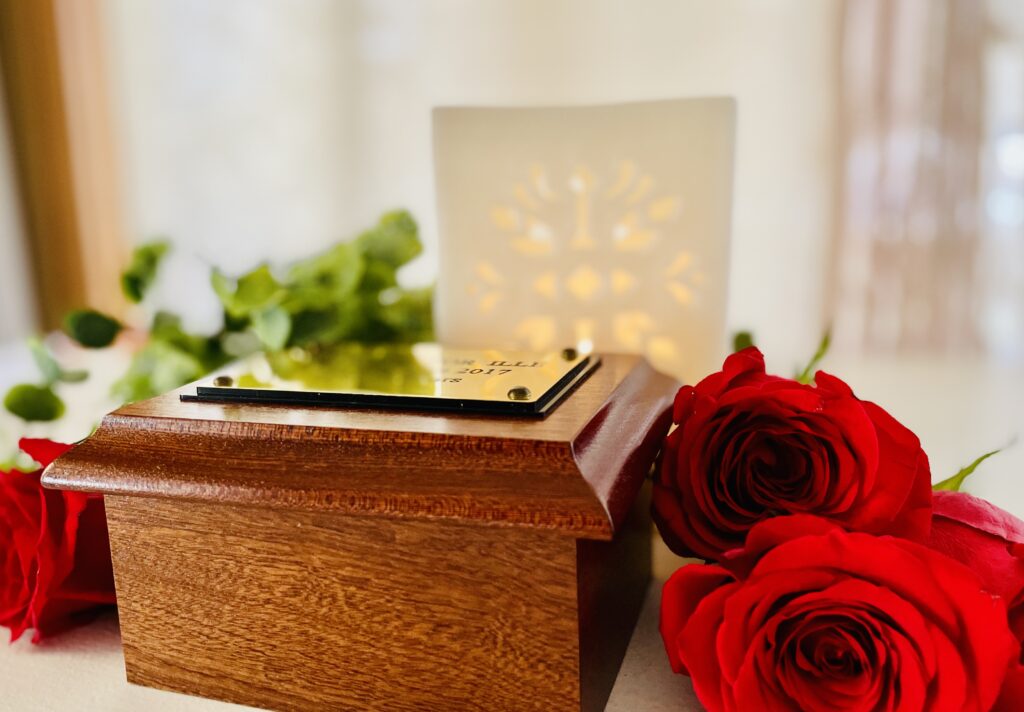
Here are a few important considerations that must be made, which are generally governed by state funeral legislation as well.
- Cremation is the final disposition of remains. It eliminates all traces of DNA and any future examination of remains. For this reason, there is a certain protocol for authorizing a cremation.
- Cremation can only proceed after the Medical Examiner or Coroner has approved it and issued a permit. This also ensures there is no cause or concern that it should not proceed.
- For a cremation to be legally conducted, all immediate legal next of kin must sign a Cremation Authorization Form. If siblings disagree, a funeral provider will not proceed with cremation.
- In some states, there is a mandatory wait period after death before a cremation can be conducted, even if all permits and paperwork are in order. This period ranges from 24 to 48 hours.
- Generally, it can take several days for a cremation to proceed and for the cremated remains to be available for the family. This is the time frame for completing all necessary legal documentation and scheduling the cremation.
- There are strict protocols for crematory operators to ensure cremation is handled respectfully, dignifiedly, and safely. Rigorous ID checks are maintained throughout the process. Only one body can be cremated in a retort, which must be completely cleared before the next cremation. Reputable funeral homes and crematories follow the protocols in the letter. However, as cremation and a decline in profits have hit the funeral industry, funeral homes have been cutting corners to meet their loss of income/profit. It is always wise to select a trusted provider. Although there are ‘budget’ cremation providers out there…., the cheapest is not always the best!
If you still have questions about whether cremation is for you or your family, talk to your local funeral home or DFS Memorials cremation provider. They will be happy to answer any questions you have.
